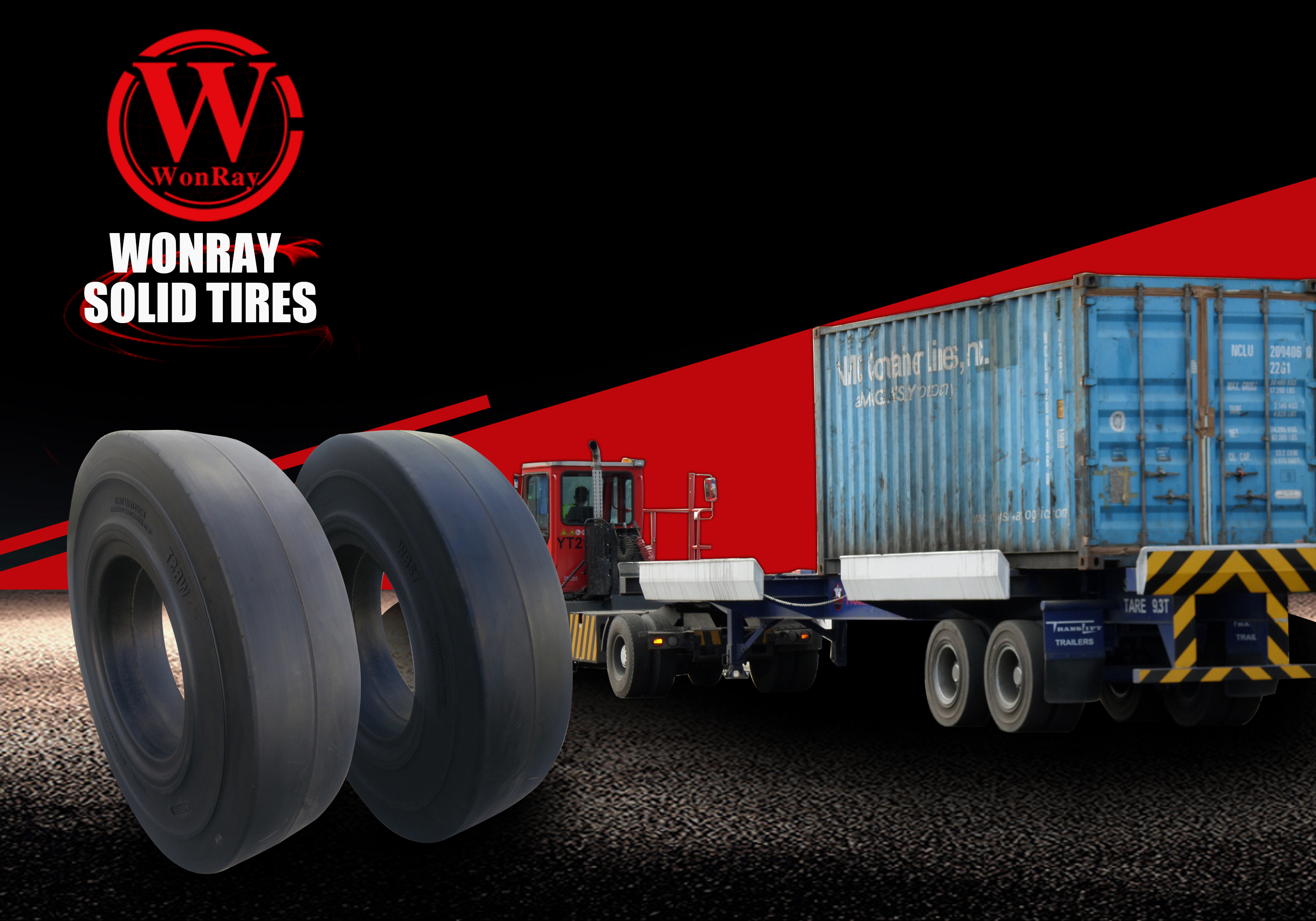In the modern industrial landscape, rubber solid tires have become an essential component for ensuring safety, reliability, and efficiency in material handling, logistics, and construction applications. Designed to withstand extreme working conditions, these tires deliver superior load-bearing capacity, excellent wear resistance, and zero risk of puncture, making them the preferred choice for forklifts, loaders, and heavy-duty industrial equipment operating around the clock.
What Is a Rubber Solid Tire?
A rubber solid tire is made entirely from dense rubber compounds without any air cavity. Unlike pneumatic tires, solid tires cannot be punctured or deflated, providing continuous operation and enhanced safety in demanding environments such as warehouses, ports, and manufacturing plants.
Core Features
-
Puncture-Proof Design: Eliminates air loss and downtime.
-
High Load Capacity: Handles continuous heavy loads with minimal deformation.
-
Low Maintenance: No air pressure checks or inflations required.
-
Outstanding Stability: Ensures smooth and balanced performance on uneven terrain.
-
Extended Service Life: Built to resist abrasion, heat, and tearing.
Advantages of Using Rubber Solid Tires
Rubber solid tires are specifically designed to meet the high performance and safety standards required by modern industrial operations. They provide consistent traction and long-term reliability under the most demanding workloads.
Key Advantages
-
Enhanced Safety: No blowouts or leaks, even under heavy use.
-
Operational Efficiency: Reduces downtime and maintenance costs.
-
Durable Construction: Optimized compound formulation for longevity.
-
Stable Handling: Delivers better control and smooth driving comfort.
-
All-Weather Adaptability: Performs well in hot, humid, or abrasive conditions.
Types of Rubber Solid Tires
Different types of solid tires are available to suit various machines and applications.
Main Categories
-
Press-On Solid Tires: Ideal for electric forklifts and warehouse vehicles.
-
Standard Solid Tires: Designed for heavy-duty forklifts and construction machinery.
-
Non-Marking Solid Tires: Suitable for indoor environments where floor cleanliness matters.
-
Cushion Solid Tires: Provide improved shock absorption and smooth handling.
Advanced Manufacturing and Quality Assurance
Modern rubber solid tire production integrates automated technology, precision engineering, and rigorous testing. Every stage — from raw material selection to final inspection — follows strict quality protocols to ensure consistency and reliability.
Manufacturing Highlights
-
Premium Rubber Compounds: Natural and synthetic blends for elasticity and toughness.
-
Automated Vulcanization: Guarantees uniform hardness and structure.
-
Reinforced Multi-Layer Design: Enhances strength and load stability.
-
Strict Quality Testing: Includes load, wear, and dynamic balance tests.
-
International Certification: Factories comply with ISO9001, CE, and REACH standards.
Application Fields
Rubber solid tires are used in a wide range of industrial sectors that require continuous, safe, and stable operation:
-
Forklifts and Material Handling Equipment
-
Port and Terminal Vehicles
-
Construction and Mining Machinery
-
Warehouse and Factory Transport Systems
-
Airport Ground Support Equipment
Why Rubber Solid Tires Are the Smart Industrial Choice
These tires combine engineering precision and long-term economy, helping industries achieve higher productivity with lower maintenance. Their toughness, stability, and reliability make them a key component in ensuring uninterrupted industrial performance.
Highlights
-
Long service life under heavy loads
-
Reduced maintenance and replacement frequency
-
Safe operation in complex environments
-
Strong adaptability to multi-shift industrial use
Conclusion
Rubber solid tires represent the next generation of industrial mobility — durable, stable, and built for performance. Their unique design eliminates downtime caused by punctures, while providing the strength and balance needed for heavy-duty applications. With advanced technology, consistent quality, and proven reliability, rubber solid tires continue to power the world’s industries safely and efficiently.
FAQ
1. What are rubber solid tires made of?
They are made from a blend of natural and synthetic rubber compounds, ensuring flexibility, strength, and wear resistance.
2. Where are rubber solid tires commonly used?
They are widely used in warehouses, factories, ports, and construction sites, especially for forklifts and industrial vehicles.
3. What is the lifespan of a rubber solid tire?
Depending on the working environment, solid tires can last two to three times longer than pneumatic tires.
4. Do rubber solid tires require maintenance?
No. Since they are completely solid, they require no air pressure checks and minimal maintenance during use.
Post time: 10-11-2025

